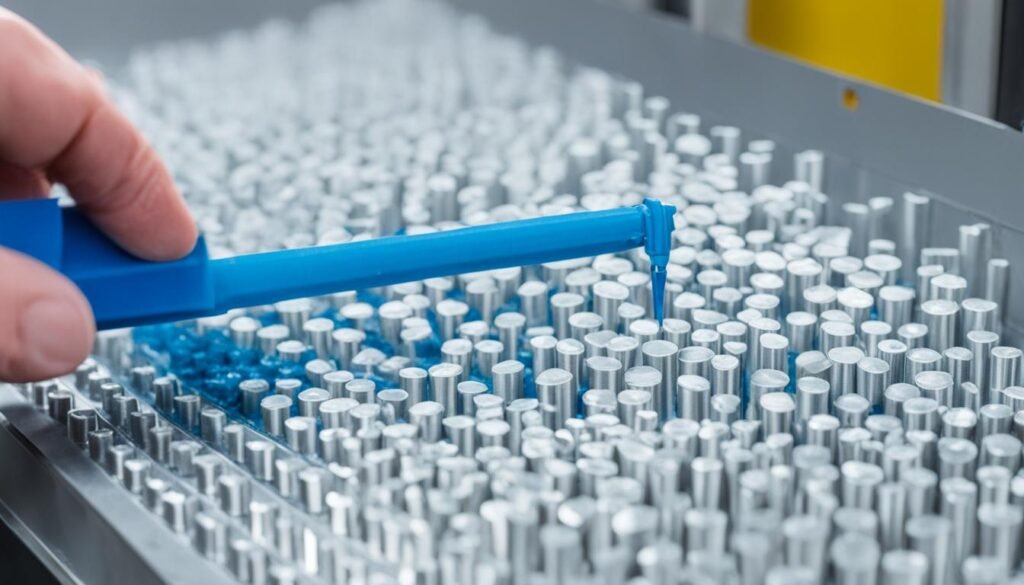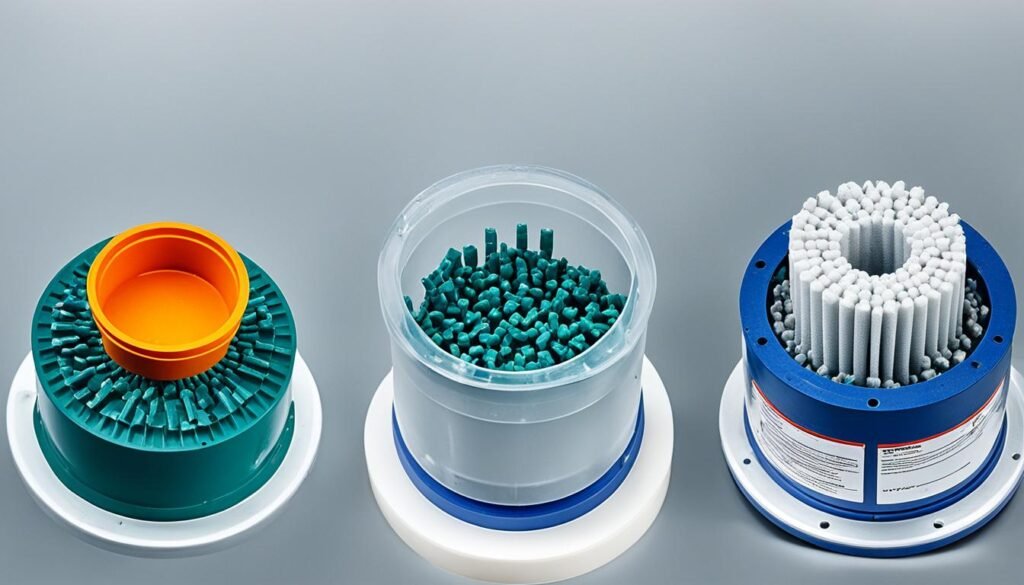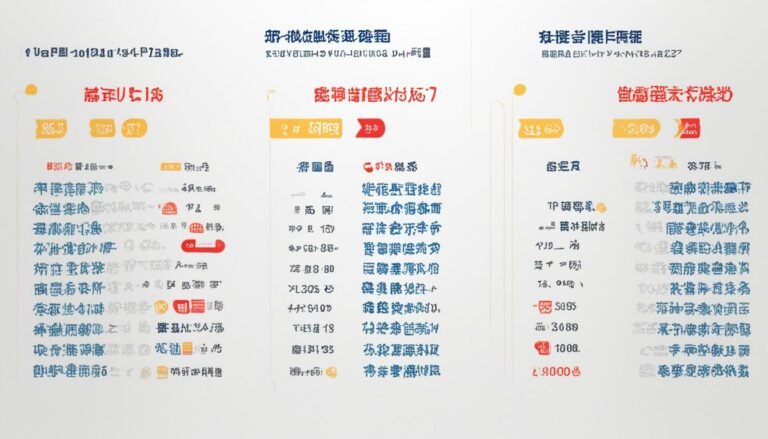In the world of manufacturing, the THY Precision Injection Moulding Process Step by Step is key for precision and efficiency. THY Precision leads by delivering top-quality products to our clients. This article will show you how Injection Moulding Process Step by Step improves product quality and makes operations smoother.
Ever wondered what makes the best injection moulding stand out? It’s all about mastering each step, from mold design to part ejection. By understanding the injection moulding cycle, you can achieve unmatched product quality and operational excellence. Let’s dive into how a refined Injection Moulding Process Step by Step can transform your production.
Key Takeaways
- Discover the step-by-step approach to optimizing your Injection Moulding Process Step by Step
- Explore strategies for enhancing mold quality and maintaining optimal injection moulding operations
- Gain insights into the key components of the injection moulding cycle, from melt delivery to part ejection
- Uncover the secret to unlocking unparalleled product quality through a refined Injection Moulding Process Step by Step
- Elevate your manufacturing prowess by mastering the intricacies of plastic molding techniques
What is Injection Moulding?
At THY Precision, we know how key the injection moulding process step by step is in making things today. This method is a big deal in the plastic industry. It lets us make lots of different plastic items, from tiny parts to big, complex shapes.
The Versatility of Injection Moulding Techniques
The injection moulding process step by step starts with melting plastic pellets in a hot barrel. Then, the melted plastic goes into a mold shaped just right. As it cools and hardens, it takes the mold’s shape, making a product that’s the same every time. This method works with many thermoplastics, making it great for lots of industries like electronics, cars, and household items.
The design of the injection mold and the injection molding machine are key to making this process work well. By designing the mold and setting the machine right, we can control the product’s size, look, and strength. This makes sure the final product is top-notch.
| Key Benefits of Injection Moulding | Comparison to Other Manufacturing Methods |
|---|---|
|
|
As a top plastic manufacturing company, THY Precision is all about giving our clients the latest in injection moulding process step by step and more. We keep improving our methods and buying new, advanced machines. This way, our customers can make their products faster, better, and more innovative.

The Injection Moulding Process Step by Step
At THY Precision, we know how crucial the injection moulding process step by step is for making top-quality plastic items. This detailed process makes sure we produce parts that are strong and consistent. Let’s look at the main stages of the injection moulding process step by step.
The first step is mold design. Our experts design the mold to exactly fit the shape and size of the final product. They think about things like the shape of the part, the material’s properties, and what we need to make.
Then, we pick the right thermoplastic material for the job. We look at things like how strong it is, how flexible it is, and how much it costs. This makes sure the final product is what the customer wants.
After choosing the mold and material, we set up the machine. Our team makes sure the injection molding machine is ready by adjusting things like temperature, pressure, and speed. This helps make the resin melt and mold perfectly.
- The melted plastic is pushed into the mold, where it cools and solidifies to the right shape.
- Finally, the finished part comes out of the mold, ready for more work or putting together with other parts.
| Step | Description |
|---|---|
| Mold Design | Making the mold to exactly match what the final product should look like. |
| Thermoplastic Selection | Picking the right material for the job based on strength, flexibility, and cost. |
| Machine Setup | Getting the injection molding machine ready to melt and mold the resin well. |
| Cooling and Solidification | Letting the melted plastic cool and harden in the mold, taking its final shape. |
| Part Ejection | Taking the finished part out of the mold, ready for more work or assembly. |
By getting each step of the injection moulding process step by step right, THY Precision makes sure we produce top-quality plastic parts. Our focus on doing every step perfectly is what makes us stand out.

“Attention to detail at every stage of the injection moulding process step by step is the key to our success.”
Enhancing Mold Quality
At THY Precision, we know the mold is key in the injection moulding process. Its design, materials, and upkeep affect the final product’s quality. We focus on improving mold quality at every step to get consistent, top-notch results.
Mold Design and Materials
Creating a mold that meets the injection moulding process demands is vital. Our experts pick the right mold materials based on the part’s complexity, how much it will be made, and what the final product needs. This way, we reduce defects and extend the mold’s life.
Mold Maintenance and Inspection
Keeping the mold in top shape is crucial for its performance and quality. Our mold maintenance plan includes regular cleaning, polishing, and checking the water channels. We also do detailed inspections to spot wear or damage early, avoiding downtime.
| Mold Maintenance Checklist | Frequency |
|---|---|
| Mold Cleaning | Weekly |
| Mold Polishing | Monthly |
| Water Channel Inspection | Quarterly |
| Mold Assembly Inspection | Bi-annually |
By focusing on mold quality, THY Precision ensures our production is consistent and defect-free. This approach boosts the efficiency of our injection moulding work.
“Enhancing mold quality is the foundation for delivering exceptional products through the injection moulding process step by step.”
Strategies for Efficient Injection Molding Operations
At THY Precision, we know how crucial it is to make your injection molding process better and more profitable. We’ve shared key strategies to help you. These strategies will make your workflows smoother, use your machines better, and improve how you plan and manage materials.
Improving your injection molding process starts with optimizing it step by step. By looking closely at your current workflows, you can find problems, cut waste, and make the process smoother. This might mean using lean manufacturing ideas, setting up machines better, and handling materials more efficiently.
Using new technologies like automation and real-time monitoring can also boost your process. Automating tasks cuts down on cycle times, lowers mistakes, and lets your team focus on more important work. Watching your machines and production data in real time gives you insights. This helps you make smart choices and fix problems fast.
Good planning and managing materials well are key to efficient injection molding. By planning well and managing your inventory better, you can cut downtime, reduce waste, and keep materials moving smoothly in your production cycle.
The secret to lasting efficiency in injection molding is always getting better and making decisions based on data. By checking your performance often, finding areas to improve, and making changes, you can keep making your manufacturing processes better and more profitable.
“Optimizing your injectionmouldingprocessstepbystep operations is not a one-time event, but rather a continuous journey towards greater efficiency and competitiveness.”
Conclusion
The injection moulding process is key to making high-quality plastic products efficiently. It’s complex but vital for THY Precision. By improving mold quality and using data, manufacturers can make better products and work smarter.
Continuous improvement is at the core of success. By refining the process, analyzing data, and keeping molds in top shape, THY Precision ensures reliable and cost-effective production. This approach helps make consistent, high-quality plastic parts.
As the industry grows, staying ahead means using new injection moulding tech and being innovative. THY Precision can lead by improving the process step by step. This leads to better efficiency, new chances, and products that meet customer needs.







